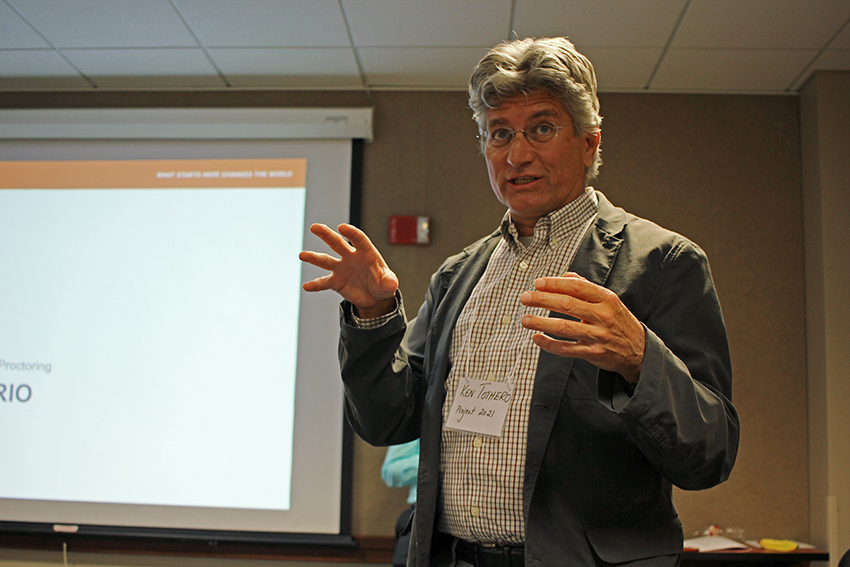Experimentation is the beginning of progress in education, according to James Pennebaker, executive director of Project 2021, an education innovation project.
Pennebaker introduced the latest initiative in redesigning undergraduate education Thursday, along with his project team and the Faculty Innovation Center. Project 2021 is based on research aimed at enhancing students’ experience and strengthening their social ties with peers and faculty.
According to the Project 2021 website, it was launched in January by President Gregory Fenves “in order to better meet the educational needs of undergraduates in the (current) century.” Pennebaker said the main question the project is trying to answer is how to harness the longstanding tradition of teaching to discover what learning systems actually benefit students.
“As teachers, we sometimes think we know what’s best for students, but we don’t,” Pennebaker said. “It’s all about discovery. Part of the future is rethinking what a class is.”
Pennebaker also said the project has a focus on helping faculty make classes a powerful social experience.
“(Teachers) have this naive view that the most important part about college is what we teach in our classrooms,” Pennebaker said. “I frequently ask alumni the three most formative experiences they had in college and I feel lucky if one of them is something that happened in the classroom.”
Economics senior Sreyas Mahadevan said his social experience in college has been far more memorable than academics and that teachers should focus more on the interaction aspect of education to make classes more engaging.
“People start school at (age) 5 so the experience of going to class isn’t very new, but the ability to go out and participate in sports, rallies and clubs is,” Mahadevan said. “The social parts of college are what make college unique.”
George Siemens, director of the Learning Innovation and Networked Knowledge (LINK) research laboratory at the University of Texas at Arlington, said Project 2021 is UT’s approach to adapting to new trends and technology society. He said these trends include moving to the digital realm, which impacts how people do everything, and the transition to networks, which alters all aspects of how we interact with information.
“Society has historically always created institutions that mirror what it does with information,” Siemens said. “The university system today is not yet reflective of what our society is doing with information.”




















